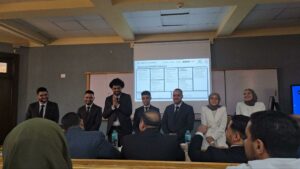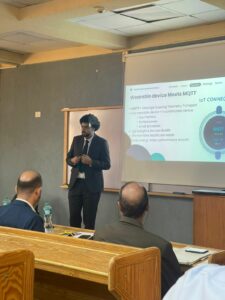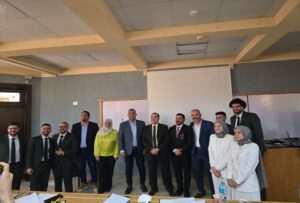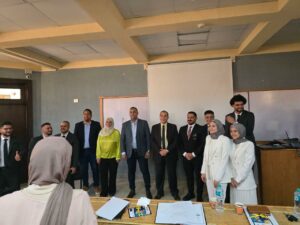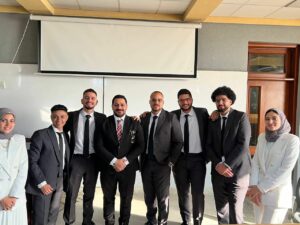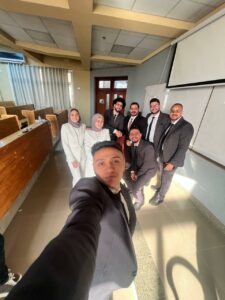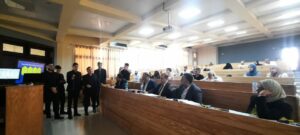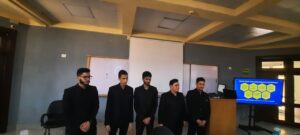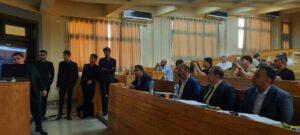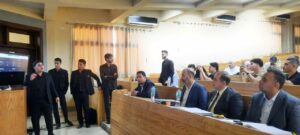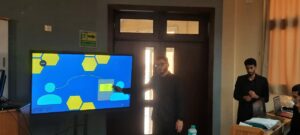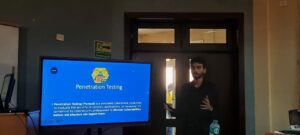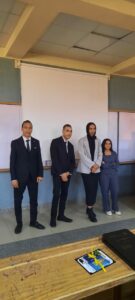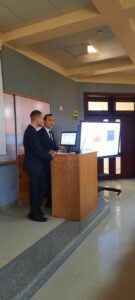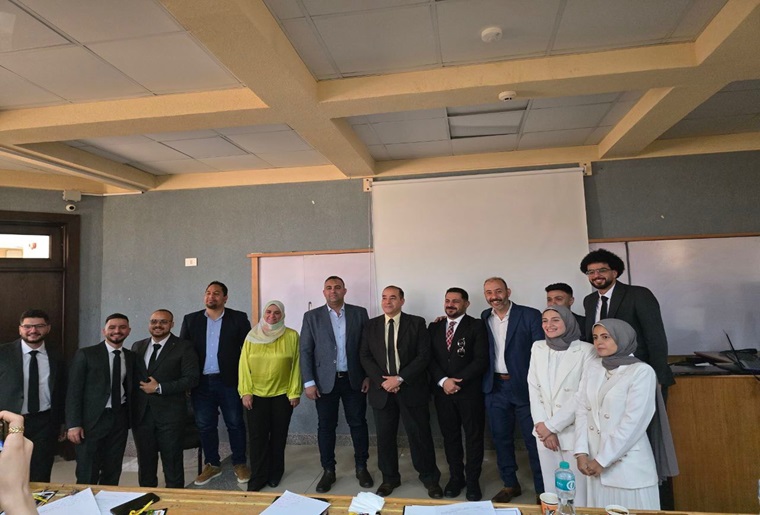Students of Communication Engineering at the Egyptian Russian University Discuss Graduation Projects.
With the aim of developing the educational process and providing students with unique experiences that combine academic content, training, and practical application, enabling them to be qualified and up-to-date with the job market, and under the patronage of Professor Dr. Sherif Fakhry, President of the University, Professor Dr. Alaa El-Batsh, Dean of the Faculty of Engineering, and Professor Dr. Shaimaa Mustafa, Head of the Communications Engineering Department, the graduation projects for the second semester were discussed. Students implemented a set of innovative ideas and smart solutions to some societal problems. The presentations and discussions were characterized by interactivity amidst a scientific and enthusiastic atmosphere.
The projects varied and included advanced technologies, as follows:
The first project was called “Chroni Connect”: a smart system for monitoring chronic diseases using the Internet of Things. It is an innovative system developed by a distinguished student team under the supervision of Dr. Mohamed Ahmed Maher, to monitor chronic diseases such as diabetes, blood pressure, and heart disease using Internet of Things (IoT) technologies and cloud platforms. The Chroni Connect system features:
* A smart bracelet that measures vital signs (oxygen levels, heart rate, glucose, and detects falls and fainting).
* Patient data is sent to doctors via a secure cloud platform.
* Instant alerts when dangerous readings or emergencies are detected.
* An easy-to-use interface for doctors to monitor patients remotely, especially in rural and remote areas underserved by services.
The project team included students: Bahaa Hesham, Walid Sabry, Karim Mohamed, Mohamed Yasser, Nasser Moamen, Ola Raafat, and Sohaila Ahmed.
This project is a scientific achievement that paves the way for the digitization of healthcare in Egypt and the Arab world.
The second project, supervised by Dr. Tamer Saleh, focused on cybersecurity using artificial intelligence and phishing attacks. The student team designed and implemented an advanced system to detect cyber threats using honeypot platforms and ethical hacking tools such as Kali Linux and Metasploit. The project aims to enhance network security by understanding modern threats and developing smart defense mechanisms, thus protecting organizations from breaches and cyberattacks.
Project highlights:
* Analyzing cyberattacks via the integrated T-Pot platform, which includes more than 20 types of dummy systems to attract hackers and study their methods.
* Simulating real-world attacks such as Slowloris to test servers’ ability to withstand low-speed attacks.
* Using ESP32 to build low-cost mobile wireless hacking tools, such as Evil Twin and Deauthentication attacks.
* Analyzing data using Kibana and Elasticsearch to track hacker behavioral patterns.
This achievement, which represents an important step toward enhancing digital security in Egypt and the Arab world, was participated in by students: Osama Mohamed, Tarek Yahya, Abdel Rahman Mohamed, Osama Ali, and Fares Ayman.
The third project, titled “Spectrum Sharing for 5G Smart Devices by Optimizing Spectrum Usage,” was supervised by Dr. Mohamed Mostafa and aims to improve the utilization of the frequency spectrum in 5G mobile networks. The project team included students Ahmed Ashraf, Ibrahim Adel, Heba Allah Abdel Halim, and Shorouk Sayed. It’s worth noting that these projects were admired by the judging panel, who recommended them to local and international competitions and sought funding, as they address many important contemporary issues.
